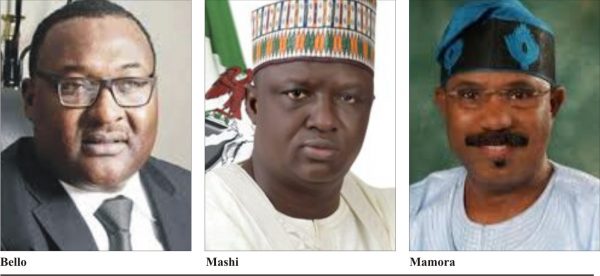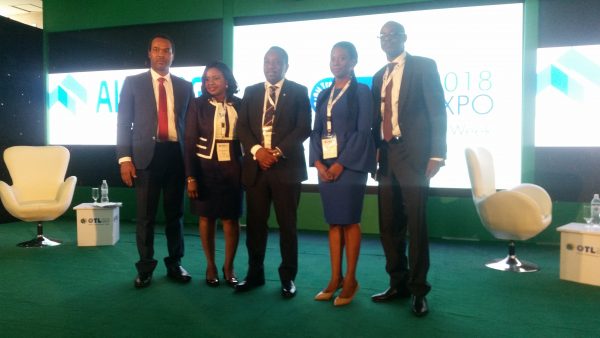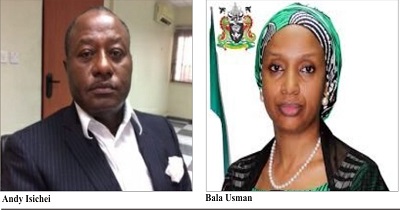2019 Half Year Rating: How Shippers’ Council, NIWA, NiMET Fared
By Kenneth Jukpor & Okuneye Moyosola
MMS Plus brings you an assessment of the major parastatals in the transport sector for the first half of the year 2019. The first six months was centered on pre-election, elections and post-election drama, but how did transport agencies and institution attack their core functions.
For the grading system: A =90-100%, B+ = 80-89%, B =70-79%, C+ =60-69%, C =50-59%, D =40-49% and E = 30-39%, F = 0-30%. Enjoy it:
Nigerian Shippers Council (NSC)
For the purpose of this report, only the functions of the Nigerian Shippers’ Council as Port Economic Regulator would be analyzed. There are ten (10) functions and each carries 10points;
• Provide guidelines on tariff setting in order to guide against arbitrariness
During the first half of 2019, the Council was able to set uniform haulage rates for trucking. Although this could be a big win for the Council, the industry and the nation at large; numerous factors including; the state of roads, market forces, numerous charges, among others pose threats to the actualization of the new truck haulage rates.
The Council has also been negotiating with shipping lines, terminal operators and other players on the need to curb arbitrary charges among other fiscal issues at the ports, but the highpoint in this area was the attainment of standardizes freight rates.
Score = 7/10
• Monitor and enforce standards of service delivery to ensure availability, accessibility, affordability, stability, predictability and adequacy of services
Standards has always been an issue that raises conflict between the Council and operators. For instance has been unable to standardize trucking, trains or carriage of goods via the waterways. The Council has also been unable to ensure standards of freight forwarding services, its predictability and affordability.
Score =3/10
• Encourage competition and guard against the abuse of monopoly and dominant market positions; This role has received more attention by the Council; with the Council striving to ensure a level playing field for all stakeholders.
Score = 5/10
• Perform mediatory role among stakeholders;
The Council was able to perform the role of an intermediary and an unbiased umpire amongst the industry stakeholders in the period under review.
Score = 6/10
• Establish accessible and modern dispute resolution mechanism
The Port Service Support Portal (PSSP) and Standards Operating Procedures (SOPs) have been crucial for industry stakeholders as mechanisms for dispute resolution.
Score = 5/10
• Regulate market entry and exit
The Council has been swift to limit barrier to enter or exit the industry making efforts to link newbies such as Inland Dry Ports (IDP) to key stakeholders and soliciting support for them where necessary.
Score = 4/10
• Promote efficiency in the provision of port services
The Council has been able to engage several service providers like freight forwarders, truckers, Customs, terminal operators, etc on the need to promote efficiency but few improvements were recorded because inefficiency earns some stakeholders like terminal operators, shipping lines and dubious Customs officers more money. Score = 5/10
• Minimize high cost of doing business and prevent its inflationary effect on the Nigerian economy
This role has received a massive push by the Council with NSC engaging several service providers on the need to minimize cost. The Council has also set to protest the unwarranted high war risk surcharge on Nigeria-bound cargo by the international maritime insurance community.
Score = 6/10
• Encourage private sector investment in the port sector
The Council was seen to play this role actively in soliciting sponsors and facilitators for the Inland Container Depots and Truck Transit Parks with the Kaduna Dry Port the most recording the most significant development.
Score = 5/10
• Monitor and ensure compliance by all parties with the provisions of the Port Concession Agreements
There is nothing significant to report in this area at the moment.
Score = 2/10
Conclusion:
The biggest achievement for the Council in the period under review was the effort to set uniform truck haulage rates from major ports to several parts of the country. It was also a period where the Council’s hopes of transmuting into National Transport Commission (NTC) were dashed. Unlike other agencies in the transport sector, the leadership of the Council wasn’t distracted by the 2019 presidential elections and gubernatorial jostling.
Grade = D (48%)
Nigerian Meteorological Agency
The Nigerian Meteorological Agency (NIMET) is a Federal Government agency charged with the responsibility to advise the Federal Government on all aspects of meteorology; project, prepare and interpret government policy in the field of meteorology; and to issue weather (and climate) forecasts for the safe operations of aircrafts, ocean going vessels and oil rigs.
It is the responsibility of the Agency to observe, collate, collect, process and disseminate all meteorological data and information within and outside; co-ordinate research activities among staff, and publish scientific papers in the various branches of meteorology in support of sustainable socio-economic activities in Nigeria.
The core functions of NIMET will be unbundled into 4 parts and each carries 25 marks.
Observe, collate, collect, process and disseminate all meteorological data and information
The Nigerian Meteorological Agency (NIMET), in the first half published weather reports for most parts of the country in order to keep citizens abreast of weather conditions The agency, in several reports also advised farmers on the right time for planting activities. In one of its reports, it urged farmers in the North to restrain from planting crops due to the current heavy rainfalls across the region.
In February, through its findings, the agency was able to inform Nigerians about the dust hazy weather conditions across the country in Nigeria which could disrupt flight operations. Road users were also advised to exercise caution and avoid speeding especially during early morning period when horizontal visibility is impaired by fog, mist or dust haze.
Score: 10/25
Advise the Government on all aspects of meteorology
In the first half of the year, NIMET advised state governments and citizens of the southern part of the country to install measures to prevent flooding associated with early intense rains across the region. They also urged people to use the forecast, in addition to the flood outlook issued by the Nigeria Hydrological Services Agency, so that they could guard against damage by flooding.
Score: 12/25
Project, prepare and interpret government policy in the field of meteorology
At the beginning of the year, NIMET listed 18 states likely to experience below normal rainfall in 2019. It also predicted the dwindling availability of water for various socio-economic purposes over most parts of Nigeria in 2019.
On power generation, transmission and distribution, the agency’s prediction in the first half indicated that since power generation in Nigeria is majorly hydroelectric, it could be affected by rainfall amount as water shortage could lead to lower generation.
According to the prediction, rainfall in 2019 is expected to be below normal to normal in most parts of the country, including areas where hydroelectric dams exists such as Kainji, Jebba and Shiroro. The prediction implied that power generation is likely to be affected negatively by lower rainfall amount in 2019.
NIMET also advised policy makers to develop alternative means of power generation so as to meet up with the growing demands in electricity by the public.
Score: 11/25
Monitor environmental pollution and ozone concentration.
Through its weather forecast, NIMET recommended proper Dam management avert disastrous effects of flooding due to expected flows over the places where normal to above normal rainfall amounts were predicted.
In the first half, NIMET’s forecast in its 2019 Seasonal Rainfall Prediction (SRP), revealed that most places would have between below to normal amount of rainfall, while areas around Adamawa, Kwara and Oyo states would experience above-normal rainfall.
It listed states expected to experience below-normal rainfall to include: Sokoto, Katsina, Borno, Niger, Plataeu, Nasarawa, Osun, Lagos, Ondo, Ekiti, Edo, Delta, Enugu, Anambra, Imo, Bayelsa, Rivers and Cross River.
Score: 15/25
Total Score: 48/100
Conclusion
The Nigerian Meteorological Agency did a lot in monitoring the weather and also keeping the public updated by providing reliable daily weather forecast. The Regional Training Centre of NiMet also got full re-accreditation of its training programs by the World Meteorological Organization (WMO) in the first half of the year. We hope that the agency records more achievement in the second half.
Grade D 48%
National Inland Waterways Authority (NIWA)
The law establishing NIWA gave it the following statutory roles: – Provide regulation for inland water navigation; – Ensure development of infrastructural facilities for a national inland waterways connectivity with economic centers using the River Ports and nodal points for inter-nodal exchanges; –Ensure the development of indigenous technical and managerial skills to meet the challenges of modern inland waterways transportation. For the purpose of this report each of the core function carries 25points while the other functions carry another 25 points.
Provide regulation for inland water navigation:
The NIWA boss, Senator Adeleke Olorunnimbe Mamora assured the maritime community that he intends to develop on the existing regulatory framework for inland water navigation in the country, nothing of note can be reported in the period under review.
Score = 3/25
– Ensure development of infrastructural facilities for national inland waterways connectivity with economic centers using the River Ports and nodal points for inter-nodal exchanges;
The agency can count the take off of Baro port which is equipped with a Mobile Harbour Crane, Transit shed, Administrative block, fire hydrant system, water treatment plant, Reach stacker, 100KVA power generating set, and three numbers forklifts of various tonnages.
The NIWA boss has also solicited for private partnerships via PPPs to enhance the development of infrastructural facilities for national inland waterways connectivity
Score = 18/25
Ensure the development of indigenous technical and managerial skills to meet the challenges of modern inland waterways transportation:
The Authority has held several summits with indigenous operators and recently assured the Association of Marine Engineers and Surveyors (AMES) of its commitment to develop indigenous technical and managerial skills to meet the challenges of modern inland waterways transportation.
The Managing Director indicated that such provisions for trainings were made in the Authority’s 2019 budget. So, we could expect positive developments in this area in the second and third quarters of 2019.
Score = 8/25
Other functions and powers of the Authority include: – undertake capital and maintenance dredging;
– undertake hydrological and hydrographic surveys:– design ferry routes: – survey, remove, and receive derelicts, wrecks and other obstructions from in land waterways; – operate ferry services within the inland waterways system; – undertake installation and maintenance of lights, buoys and all navigational aids along water channels and banks; etc.
NIWA has been able to attack some of these responsibilities, especially the management of ferry services, survey and removal of wrecks and dirt. However, there is still so much to be done in this area.
Score = 12/25
Conclusion:
Mamora has been able to guide NIWA to unfold an inland waterways transportation master-plan capable of providing the platform for the much anticipated multi-modal transportation system in Nigeria. The maritime industry can anticipate more success stories from the agency this year as Senator Mamora enjoys robust support of the management as well as the rank and file at NIWA.
Total Score= 41/100
Grade: D (41%)









